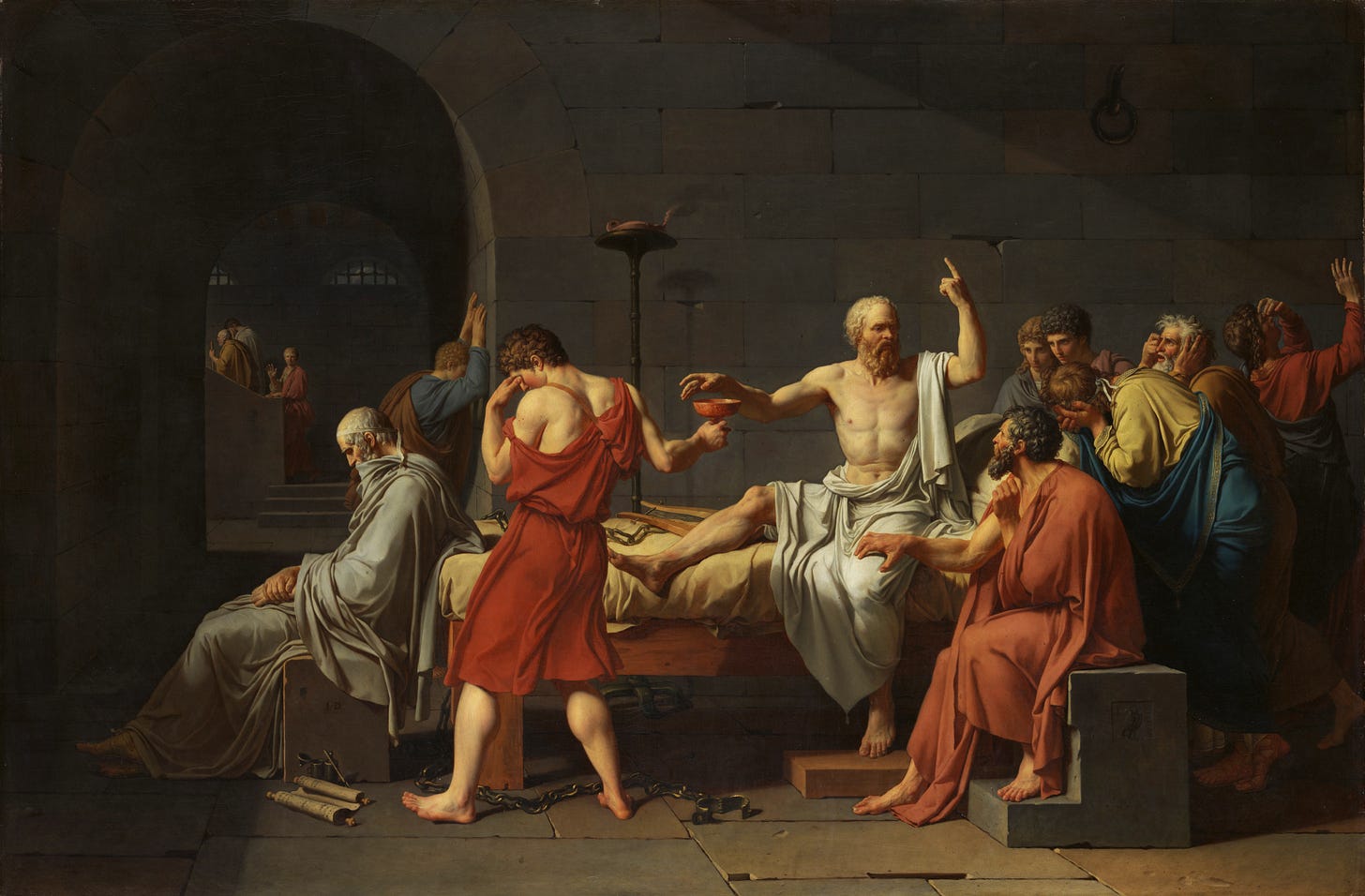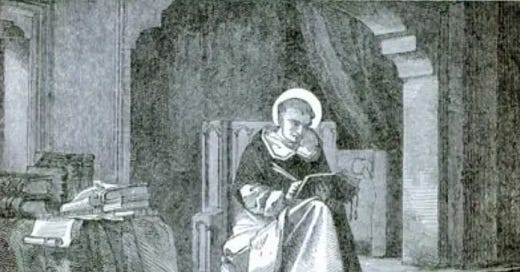The importance of study for the Catholic
By Priest from IBP in São Paulo, Brazil - I am convinced that many people lose their faith because they do not study. They measure the Church's doctrine with the rule of their ignorance
Note from the translator: The original in portuguese can be read here
Every best gift and every perfect gift is from above, coming down from the Father of lights
James 1, 17
One of the things that priests must teach the faithful in their sermons is that, at all costs, they must not depart from the natural light of reason.
God gave man the ability to know the truth, and this natural ability, with which every man is born, is called intelligence. It has, in itself, by nature, the capacity to know the truth about things, and (the intellect) becomes uncomfortable — so to speak — when it is faced with something incoherent, contradictory, absurd.
As St. John says at the beginning of his Gospel, God enlightens every man who comes into this world. He enlightens every man, each one of us, in three ways:
through the natural capacity of the intelligence to know the truth, through study, reflection, contemplation;
by the truths of faith, which God taught us through Revelation, and which the Church transmits to us;
by His grace, that supernatural gift that enlightens our intelligence, moves and strengthens our will, so that we do good and avoid evil.
Today I would like to highlight only the correct use that we must make of our intelligence, that first instrument that God gave us, the most fundamental of all, the first of all, with which we are born, because if our intelligence malfunctions, that will be the cause of the greatest misfortunes, in this life and the next. Christ did not say otherwise: “The light of thy body is thy eye. If thy eye be single, thy whole body shall be lightsome. But if thy eye be evil thy whole body shall be darksome. If then the light that is in thee, be darkness: the darkness itself how great shall it be!” (St. Matthew 6, 22-23). If we don't want to walk in this life like the blind, it is first necessary to form our intelligence in order to have light. I am convinced that many people lose their faith because they do not study. The idea may be formed that the Catholic Doctrine is something for foolish and ignorant people, but this view is the result of their own culpable ignorance. They measure the Church's doctrine with the ruler of their ignorance, and then let themselves be carried away by the most ridiculous arguments against Catholic doctrine, and even against common sense.
I am convinced that many people lose their faith because they do not study. (…) They measure the Church's doctrine with the ruler of their ignorance
The unavoidable way to form our intelligence is by studying. This is the ordinary way — in the sense of habitual, (common) normal — of forming ourselves. As a general rule, God will not give any knowledge to anyone, in an extraordinary way (mystical illuminations, visions, apparitions, etc.), when that person can obtain it by the personal use of his natural intelligence. God does not usually indicate to someone, for example, what way of life he should have, doing this by an apparition, a dream, an unquestionable sign, etc., etc... He gives, by the circumstances of life, by his commandments, etc. , everything that we need to make a reasonable decision that will be to His liking.
He does not teach each of us what is right or wrong, using primarily supernatural means. God teaches us primarily by study. It is absolutely necessary to study. First, from good books. Books that have always been recommended by saints, by theologians, by exemplary priests, by the constant practice of the Church. Flee from books that have innovative, original, risky thoughts, nebulous ways of seeing and presenting things. The same goes for articles on the internet, which are generally of very poor quality, whether in terms of the logical structure of the argument, or the ideas and principles defended. Equally for the choice of teachers with whom we wanted to train. It is necessary to be careful with what we accept and with the people we trust. Plato, in his dialogue called Protagoras (313a-314b), rebukes a young man named Hippocrates (who is not the physician of the same name) because he wanted to entrust himself to Protagoras, a sophist, intending to be formed by him:
Socrates: (…) are you aware of the danger which you are incurring? If you were going to commit your body to someone, who might do good or harm to it, would you not carefully consider and ask the opinion of your friends and kindred, and deliberate many days as to whether you should give him the care of your body? But when the soul is in question, which you hold to be of far more value than the body, and upon the good or evil of which depends the well-being of your all, about this never consulted either with your father or with your brother or with any one of us who are your companions. But no sooner does this foreigner appear, than you instantly commit your soul to his keeping. (…) Is not a Sophist, Hippocrates, one who deals wholesale or retail in the food of the soul? To me that appears to be his nature.
Hippocrates: And what, Socrates, is the food of the soul?
Socrates: (…) Knowledge is the food of the soul; and we must take care, my friend, that the Sophist does not deceive us when he praises what he sells, like the dealers wholesale or retail who sell the food of the body (…) For there is far greater peril in buying knowledge than in buying meat and drink: the one you purchase of the wholesale or retail dealer, and carry them away in other vessels, and before you receive them into the body as food, you may deposit them at home and call in any experienced friend who knows what is good to be eaten or drunken, and what not, and how much, and when; and then the danger of purchasing them is not so great. But you cannot buy the wares of knowledge and carry them away in another vessel; when you have paid for them you must receive them into the soul and go your way, either greatly harmed or greatly benefited;

As we can see, prudent people were always careful with the things they learned, because they knew that inevitably they would give them inconvenience or advantage.
What you find most today are people defending, under the guise of Catholicism, absolutely unacceptable ideas: philosophical liberalism and its political, moral, economic consequences; perennialist and gnostic traditionalism, an initiatory vision of Catholicism and the sacraments; apparitions and mysticisms without any foundation in Sacred Scripture, in Tradition, in the Magisterium, based entirely on sentimental enthusiasm; the defense of the Church's morals in certain things, but in a completely sentimental way and drenched in enthusiastic sentimentality, but without any doctrinal conviction, in an unfounded rigorism, in a heavy, rude, harsh way (which almost always ends in disasters...) .
For further clarification on the current mistakes to which the intelligences of Catholics are exposed, I seriously recommend that you read the sermon that Father Daniel Pinheiro, also from the Instituto do Bom Pastor, gave on the right and the left, which can be found here1.
In practice, an effective way of studying is to choose a single subject, for which we are most apt, and which it is most necessary for us to know, not choosing something out of curiosity, but by the fruits that we must bear and our obligations. Starting from this subject, “pulling the thread”, so to speak, and always learning new things, with logic and order. The unity of subject tends to guarantee the unity of thought and the logical connection between things in our intelligence. I know, for example, people who are very interested in family matters. From there, they can study Catholic doctrine more and more in an organized way: what marriage is, what the sacraments are, what grace is, its necessity in general and in marriage, the obligations of marriage, its consequences for the common good of society, what is a society, what is a common good, etc, etc…
Keeping the unity of your studies is a good way to keep things together in our intelligence, and not make it a pile of rubbish. But, as we said, come and ask us priests for advice on how to proceed, how to study, what to study and who is a reliable teacher or one from whom we must flee without hesitation. Otherwise, things will end badly, sooner or later…
Let's have love for study. By serious and orderly study, without being content with superficiality and curiosities, and all our interior will have light.
In the name of the Father and of the Son + and of the Holy Ghost. Amen.



